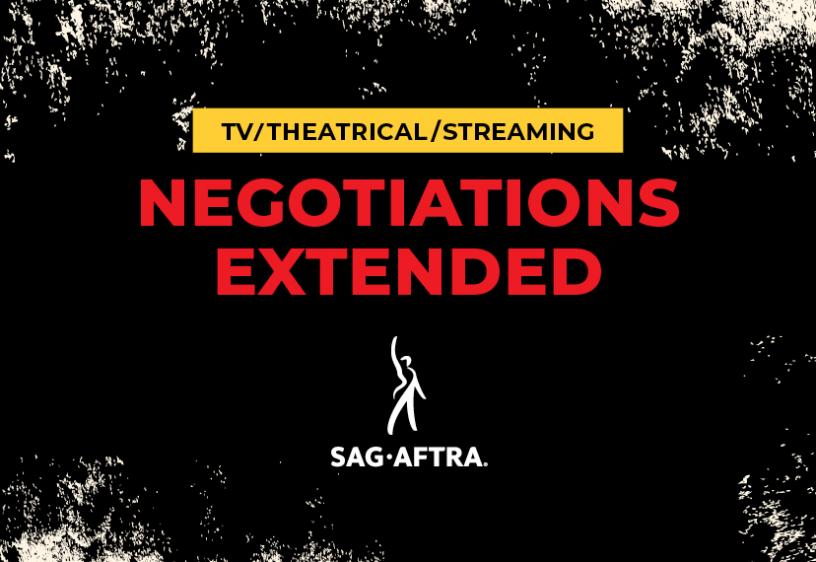SAG-AFTRA, Studios Extend Contract Talks to July 12
The unions and AMPTP agree to continue TV/theatrical contract negotiations

The professional video industry's #1 source for news, trends and product and tech information. Sign up below.
You are now subscribed
Your newsletter sign-up was successful
The immediate threat of a strike by the Screen Actors Guild-American Federation of Television and Radio Artists (SAG-AFTRA) has been delayed, with the Alliance of Motion Picture and Television Producers (AMPTP) and the SAG-AFTRA agreeing to extend the 2020 TV/Theatrical contracts as they continue negotiating a new contracts.
The agreements, which were set to expire at 11:59 p.m. PT on June 30, will now expire on July 12, at 11:59 pm PT.
The parties said that they will continue to negotiate under a mutually agreed upon media blackout and that they won’t comment to the media about the negotiations during the extension.
The union also said that the SAG-AFTRA National Board will meet on July 13, 2023 to assess whether a satisfactory deal has been reached and decide whether to declare a strike. “Membership will be advised immediately of the Board’s decision by email, on the union website, and through all union communications channels,” the union said. “Members should be prepared for the very real possibility that the National Board will declare a strike of the Codified Basic Agreement and Television Agreement effective as early as July 13, 2023.”
The negotiations are taking place at a time when the Writers Guild of America has already gone on strike, shutting many TV and film productions and forcing the major networks to shift their fall schedules.
SAG-AFTRA has overwhelmingly voted to join the WGA in a strike if a new agreement can’t be reached.
In early June the AMPTP, which represents the studios, negotiated an agreement with the Directors Guild of America.
The professional video industry's #1 source for news, trends and product and tech information. Sign up below.
George Winslow is the senior content producer for TV Tech. He has written about the television, media and technology industries for nearly 30 years for such publications as Broadcasting & Cable, Multichannel News and TV Tech. Over the years, he has edited a number of magazines, including Multichannel News International and World Screen, and moderated panels at such major industry events as NAB and MIP TV. He has published two books and dozens of encyclopedia articles on such subjects as the media, New York City history and economics.

